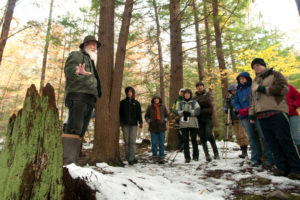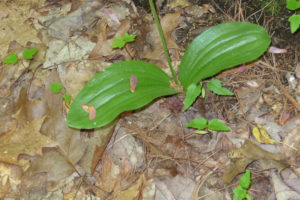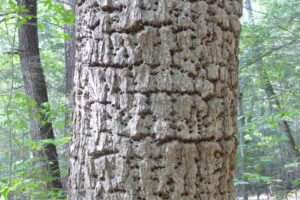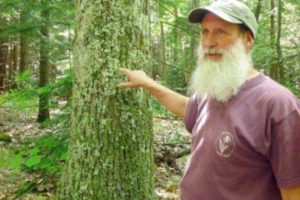Coevolution: A Model for Sustainability





Instructors: Tom Wessels
August 28, 2021 | $125
Course size: 16 students
Please Contact Us to request scholarship assistance
T
his course will delve into the scientific principles of self-organization and coevolution. Specifically we will examine how self-organization works to create systems that are energy efficient, stable, and resilient. We will then examine how this process happens in ecosystems through evolutionary time via coevolution creating biologically diverse ecosystems with robust networks of mutually beneficial relationships. After gaining a theoretical foundation we will head into the field and examine numerous examples of coevolved, mutually beneficial interrelationships. We will then head back inside to discuss human systems from the perspective of coevolution to see ways we can create a far more sustainable future.
Course Goals and Objectives
- To understand the principle of self-organization and how it works in ecosystems via the process of coevolution
- To find examples of coevolved, mutually beneficial relationships in the field
- To apply the model of coevolution to systems such as a school, business, organization, or an economy as a means to create more sustainable human systems
- To understand that at its core sustainability is all about creating robust networks of mutually beneficial interrelationships
About the Instructor
Tom Wessels is a terrestrial ecologist and Professor Emeritus at Antioch University New England where he founded the masters degree program in Conservation Biology. He has conducted workshops on ecology and sustainability throughout the country for over three decades. He is author of numerous books including: Reading the Forested Landscape, The Granite Landscape, The Myth of Progress, Forest Forensics, and Granite, Fire, and Fog: A Natural and Cultural History of Acadia.
Meals
Due to continued concerns around COVID-19, meals and beverages will not be provided this year. We ask that you please bring your own food.
Recommended Reading
Chapter 4 in The Myth of Progress: Toward a Sustainable Future by Tom Wessels
Timing
This one-day course begins promptly at 9 AM and ends at 4 PM on August 28th.
Academic Credit / Professional Development:
This course does not qualify for graduate credits. This course does qualify for 8 hours of professional development hours and continuing education units. Certificates of completion are provided at the conclusion of the course.
Cancellation Policy
While we realize that unexpected circumstances arise that are out of our control, North Branch Nature Center cannot guarantee refunds for registrations cancelled within 30 days of the course. If a cancellation occurs within this window, NBNC will attempt to fill the space from our wait list and provide a full refund. If the course needs to be cancelled within 30 days of the program, NBNC will provide a full refund. If you need to cancel due to concerns related to COVID-19, a full refund will be provided up to 48 hours before the course.

713 Elm Street
Montpelier, Vermont 05602
(802) 229-6206
Hours: Center Open Monday-Friday 9-4
Trails Open 24/7


